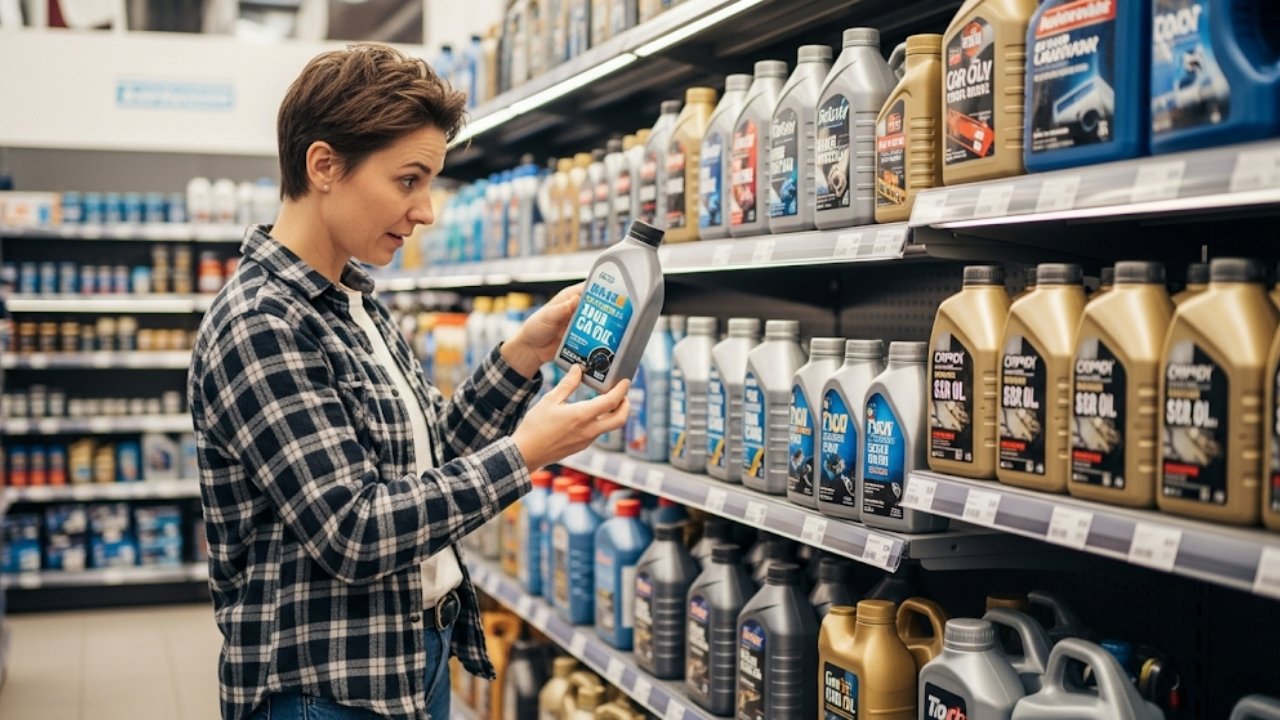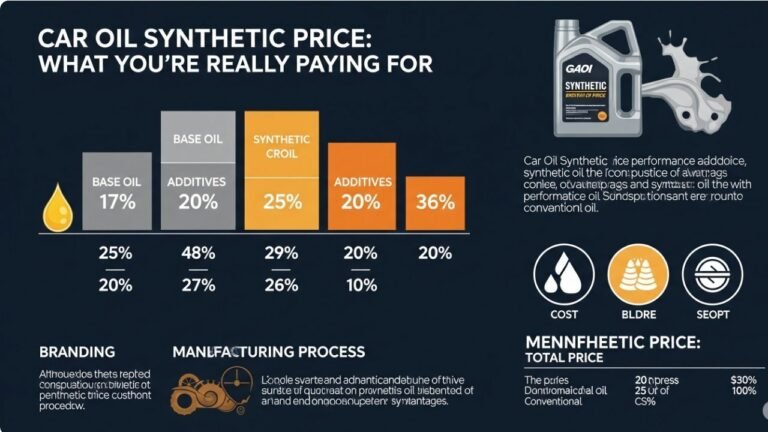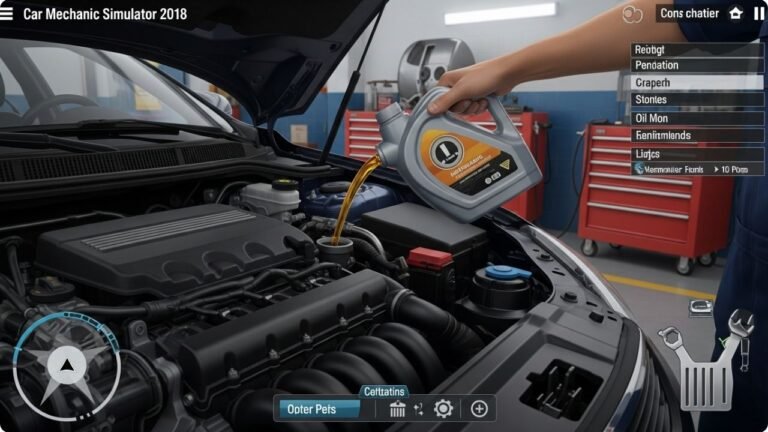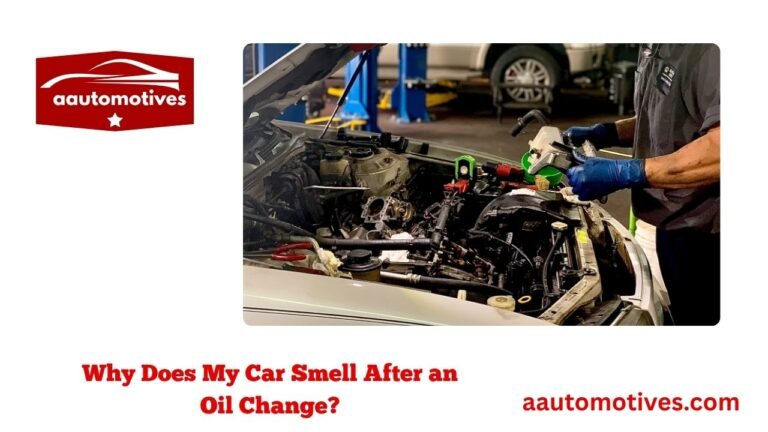Where to Buy Oil for Your Car: A Friendly Guide

Let me tell you something funny. The first time I realized I needed to buy oil for my car, I thought I had to go to the dealership. I even dressed up like I was going to a meeting! Turns out, I could’ve just walked into my local auto parts store in flip-flops. That moment taught me something most of us learn too late—knowing where to buy oil for your car is a basic skill, but it can save you time, money, and stress.
Whether you’re a seasoned driver or a first-timer staring at the dashboard light, this guide will help you figure out exactly where to buy oil for your car, without wasting a minute or a dollar. We’ll explore physical stores, online options, and even unusual places you didn’t know sold motor oil.
Why Knowing Where to Buy Oil for Your Car Matters

Buying the right oil isn’t just about price. It’s about trust, quality, and convenience. When you know where to buy oil for your car, you can:
Avoid unnecessary markups at dealerships
Choose from a wide range of options
Pick up or receive it fast when you’re in a hurry
Feel confident that you’re using oil that won’t harm your engine
And the best part? Most places make it easier than ever to find the exact oil your car needs.
Top Places to Buy Oil for Your Car: Online and Offline
So where exactly can you get your hands on the right motor oil? Let’s break it down. We’ll look at both physical stores and online retailers, because both have their perks. Here’s a quick comparison before we dive deeper:
Comparison Table: Where to Buy Oil for Your Car
| Place | Pros | Cons |
|---|---|---|
| Auto Parts Stores | Expert help, huge variety | Slightly higher prices sometimes |
| Big Box Retailers | Competitive pricing, convenient | Less help from staff |
| Gas Stations | Immediate need, 24/7 access in many cases | More expensive, limited options |
| Dealerships | OEM-approved oil, professional service | Expensive, longer wait times |
| Online Retailers | Wide selection, user reviews, home delivery | Waiting time for shipping |
| Warehouse Clubs | Bulk pricing, great for multiple vehicles | Membership required |
Each one of these places plays a role, depending on your situation.
Auto Parts Stores: Your Friendly Oil Experts
Think of these as the hometown heroes of motor oil. Stores like AutoZone, Advance Auto Parts, NAPA Auto Parts, and O’Reilly Auto Parts are packed with knowledgeable staff. These people live and breathe cars. Once, I walked into a NAPA with an old oil filter in hand and a confused look. Five minutes later, I was walking out with the right synthetic oil and a smile.
At an auto parts store, you’ll find:
All major oil brands: Mobil 1, Valvoline, Castrol, Pennzoil
Conventional, synthetic, and high-mileage options
Oil filter bundles and special offers
Free recycling for your used oil
These shops are perfect if you want hands-on help or like to double-check things in person. If you’re unsure what oil fits your car, they’ll look it up by year, make, and model in seconds.
Big Box Retailers: Walmart, Target, and More
Let’s be honest—we all end up at Walmart at some point. And guess what? They’ve got a surprisingly wide selection of car oils. The same goes for Target, Meijer, and Canadian Tire (if you’re up north). They may not have the deepest car knowledge, but they definitely win on price and convenience.
Buying oil here is ideal when you’re:
Already running errands
Looking for good deals or clearance sales
Comfortable doing your own research
You might not get as much personal guidance, but if you know your car takes 5W-30 full synthetic, you’re all set. Some even have online ordering with same-day pickup.
Gas Stations: For Emergency Situations Only
It’s 2 AM. You’re out on the road, and that oil light blinks at you like it’s whispering, “You should’ve planned better.” Don’t panic. Most gas stations and convenience stores carry small bottles of oil, usually near the windshield washer fluid or in a dusty corner.
Yes, you’ll probably pay double. And no, the selection isn’t great. But when you’re stranded, a $10 quart of 10W-40 can be a lifesaver.
Use gas stations for:
Emergency oil top-offs
Middle-of-the-night driving
Remote locations with no stores nearby
Not ideal for regular oil changes, but they’ll do in a pinch.
Car Dealerships: OEM Oil With a Price Tag
There’s nothing wrong with going to a dealership to buy oil. In fact, it’s often the most accurate source for manufacturer-recommended fluids. If you have a newer car, especially a luxury model like BMW or Lexus, the dealership might offer oil formulated specifically for your engine.
But here’s the thing: you’ll pay a premium. The markup can be 20% to 50% higher than other places.
Only go to the dealership if:
Your car is under warranty
You drive a high-performance or luxury model
You want to be extra cautious
They often offer full-service packages, so it’s a good option if you want someone else to handle the oil change too.
Buying Car Oil Online: The Ultimate Convenience
This is my go-to now. I’ve tried all the places above, but buying car oil online feels like magic. You don’t even have to leave the couch. Retailers like Amazon, Walmart.com, eBay Motors, and RockAuto have massive inventories.
Online, you can:
Compare prices instantly
Read reviews and ratings
Find rare or specialty oils
Order in bulk for discounts
Once I even found a deal on Mobil 1 where I got five quarts and a filter for under $30—delivered to my door. Just make sure you buy from trusted sellers to avoid counterfeit oil (yes, that’s a thing).
Warehouse Clubs: Great for Multi-Car Families
If you’ve got more than one vehicle or like to stock up, consider Costco, Sam’s Club, or BJ’s Wholesale Club. These places often sell motor oil in bulk, which can save you a lot over time.
You’ll find:
High-quality brands at wholesale prices
Bundles with oil filters and accessories
Seasonal discounts and rebates
Of course, you’ll need a membership. But if you already shop there for groceries or gas, it’s a no-brainer. And if you’re a DIY oil changer, this can be a budget-friendly routine.
Things to Look Out For When Buying Car Oil
Before you hit that “buy now” button or toss that bottle into your cart, here’s what you should always check:
Viscosity grade (like 5W-30 or 10W-40) – must match your car’s specs
API certification – ensures oil meets industry standards
Expiration date – yes, oil can degrade over time
Brand reputation – stick to well-known brands unless you’re sure
If you’re not sure what your car needs, check your owner’s manual. Or use online tools from brands like Castrol and Valvoline to match the right oil to your car.
How Often Should You Buy Oil for Your Car?
Let’s be real—nobody wants to think about oil changes. But like brushing your teeth, it’s something that just needs to happen. The big question is: how often should you buy oil for your car?
The answer depends on your car’s age, mileage, and the type of oil you use. If you’re using conventional oil, you might need to change it every 3,000 to 5,000 miles. With synthetic oil, you can often stretch that to 7,500 to 10,000 miles.
But here’s what I do—and what I recommend: Check your oil once a month. Just pop the hood, pull the dipstick, and wipe it clean. This habit alone has saved me from two near-breakdowns on road trips.
Also, your owner’s manual is your best friend. It’ll tell you exactly what kind of oil your car takes and how often to replace it. If you drive in extreme weather or in heavy traffic every day, you may need to change oil more often.
Watch Out for Fake or Low-Quality Oils Online
We’ve all been tempted by a deal that looks too good to be true. I once saw five quarts of synthetic oil on an unfamiliar website for half the price. My gut told me no, but curiosity won. Big mistake. The oil arrived in a suspicious bottle, smelled weird, and had no API certification. I threw it out.
Buying oil online is super convenient—but only if you’re careful. Stick to:
Reputable sites like Amazon (sold and shipped by Amazon), Walmart.com, or official brand websites
Check for API or ILSAC certifications on the label
Avoid off-brand oils that don’t provide clear specs or reviews
Don’t buy opened or repackaged bottles
Trust your instincts. If something feels off, don’t risk your engine over a few bucks.
Tips for Buying the Right Oil Every Time
Let’s make life easier. Here’s a simple checklist for buying the right oil, whether you’re in-store or shopping online:
✅ Buying Checklist:
Know your car’s oil specs (check the owner’s manual or a trusted website)
Choose the right viscosity grade (like 0W-20, 5W-30, etc.)
️ Consider your climate (thicker oils for hot weather, thinner for cold)
Decide if you want conventional, synthetic, or high-mileage oil
️ Pick a trusted brand (Mobil 1, Castrol, Valvoline, Shell, etc.)
Save your receipts (especially if your car is under warranty)
Buying the right oil isn’t hard—you just need to be a little mindful.
The Importance of Oil Filter Bundles
Don’t forget the filter! When you buy oil, it’s a smart move to also replace the oil filter. That’s like brushing your teeth but skipping floss—your engine won’t be fully clean.
Many stores and websites offer bundles that include:
5 quarts of oil
1 oil filter (matched to your vehicle)
Sometimes a funnel or gloves
These bundles are not just convenient—they often save you money. Plus, you know you’re getting parts that work together properly.
Next time you search where to buy oil for your car, also check for filter deals. Your engine will thank you.
When to DIY and When to Go to a Pro
I love a good DIY project—there’s something deeply satisfying about changing your own oil. It makes you feel connected to your car. But let’s face it: not everyone has the time, tools, or space to do it.
Here’s when you should DIY:
You’ve got a garage or driveway
You already own an oil pan and filter wrench
You like saving money and learning new skills
Here’s when to go to a professional:
You’re tight on time
You’re not sure how to dispose of used oil
You want the service recorded for your car’s history
Even if you don’t change it yourself, buying your own oil and taking it to a mechanic can still save you money. Many shops let you bring your own supplies and just charge labor.
FAQs: Where to Buy Oil for Your Car
1. Can I buy motor oil at any gas station?
Yes, but it’s usually more expensive and the selection is limited. Gas stations are best for emergencies, not routine oil purchases.
2. Is it safe to buy motor oil online?
Absolutely, as long as you stick to trusted retailers. Look for sites like Amazon (sold by Amazon), RockAuto, or Walmart. Avoid buying from unknown third-party sellers.
3. How do I know which oil is right for my car?
Check your owner’s manual or use an oil lookup tool on major brand websites (like Mobil 1 or Valvoline). The viscosity grade (e.g., 5W-30) and type (synthetic, conventional) will be listed there.
4. Does synthetic oil really make a difference?
Yes, synthetic oil lasts longer, performs better in extreme temperatures, and offers better engine protection. It’s more expensive, but worth it for most modern engines.
5. Should I buy oil in bulk?
If you own more than one car or do your own oil changes regularly, buying in bulk from warehouse clubs like Costco or Sam’s Club can save you money in the long run.
6. Can I mix brands of motor oil?
Technically, yes—but it’s not recommended. Stick to the same brand and type of oil if possible for consistent performance and additive balance.
7. How much oil do I need to buy for an oil change?
Most cars take 4 to 5 quarts. Larger vehicles like trucks or SUVs may require up to 8 quarts. Always check your car’s manual for the exact amount.
8. What’s the best time to buy car oil?
Watch for holiday sales, Black Friday, and manufacturer rebates. Auto parts stores and online retailers often run deals in spring and fall.
Final Thoughts: Choose Smart, Drive Confident
Buying oil might not seem like a big deal. But when you think about it, this one product keeps your engine running smoothly, prevents breakdowns, and even saves fuel. When you know where to buy oil for your car, you take back control—over your time, your money, and your vehicle’s health.
I’ve bought oil at midnight from gas stations, scored deals online, and had great conversations in auto parts stores with mechanics who looked like they stepped out of a Fast & Furious movie. Every experience taught me something.
Here’s the truth: Your car is like a partner. Treat it well, and it’ll stick by you. Ignore the oil light, and it’s a breakup waiting to happen.
So next time that dashboard light blinks, don’t panic. Just smile, think of this guide, and head to the right place with confidence.






